Mum detects son’s rare cancer using the flash on her phone
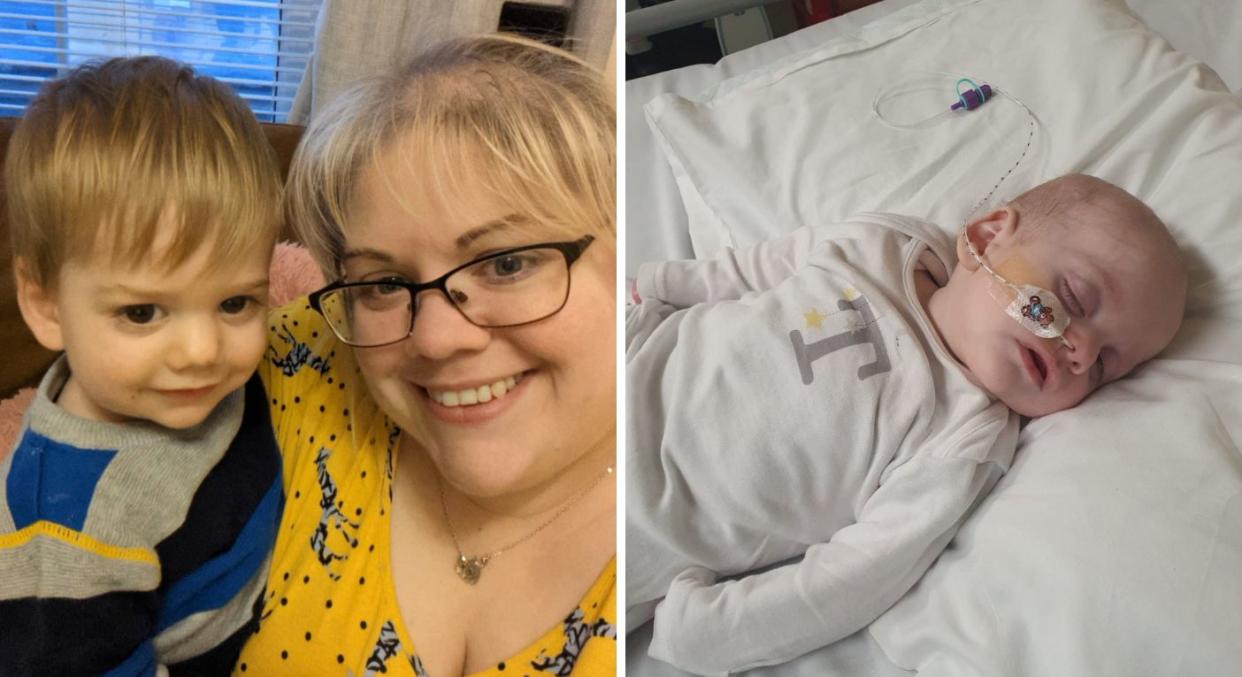
A mum has shared how she detected her son's rare cancer using the flash on her mobile phone camera.
Sarah Hedges, 40, a support worker, from Gillingham, Kent, was in the kitchen cooking dinner when she looked across at her then three-month old, son Thomas, and spotted an unusual "white glow" in his eye.
The mum-of-four described the glow as reflecting the light "like a cat's eye" and took photos with the flash turned on with her phone to see if she could spot it again.
Having googled what she had noticed, she was concerned as cancer was revealed as a potential cause of the glow, so she showed the images to her GP.
Tests confirmed Hedges' suspicions, with her son being diagnosed with retinoblastoma - a rare and aggressive form of eye cancer that affects babies and young children.
Thankfully, following treatment via chemotherapy Thomas' health is now stable.
Recalling the moment when she was told about her son's diagnosis Hedges says: "When you hear the word cancer you automatically think of the worse. I thought I was going to lose him because I knew the condition could be life-threatening.
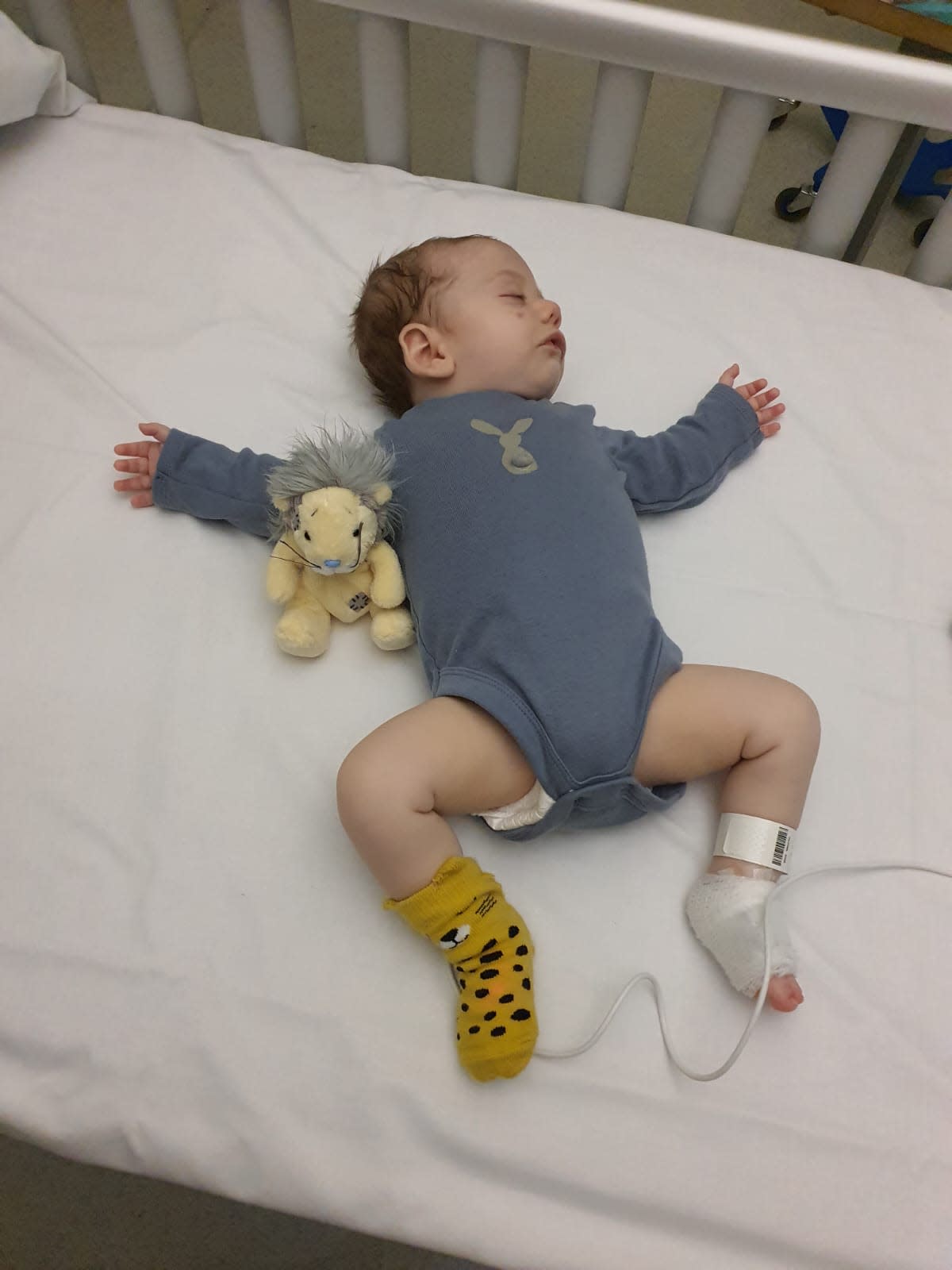
"I just wanted someone to tell me that it was a bad dream and that I would wake up in a minute.
"My world just fell apart," she continues. "The doctor kept talking and holding my hand trying to comfort me, but I just sobbed.
"I thought my son was going to die."
Sarah was cooking dinner for her three other children, Beth, 21, Dillan, 16, and Lucas, eight, in November 2022 when she first spotted the glow.
"His eye looked like a cat's eye," she explains.
"But I couldn't see it again so then I wondered whether it was just the lighting.
"It was playing on my mind, so the next day I moved Thomas around in different rooms near lighting and eventually, I saw it again."
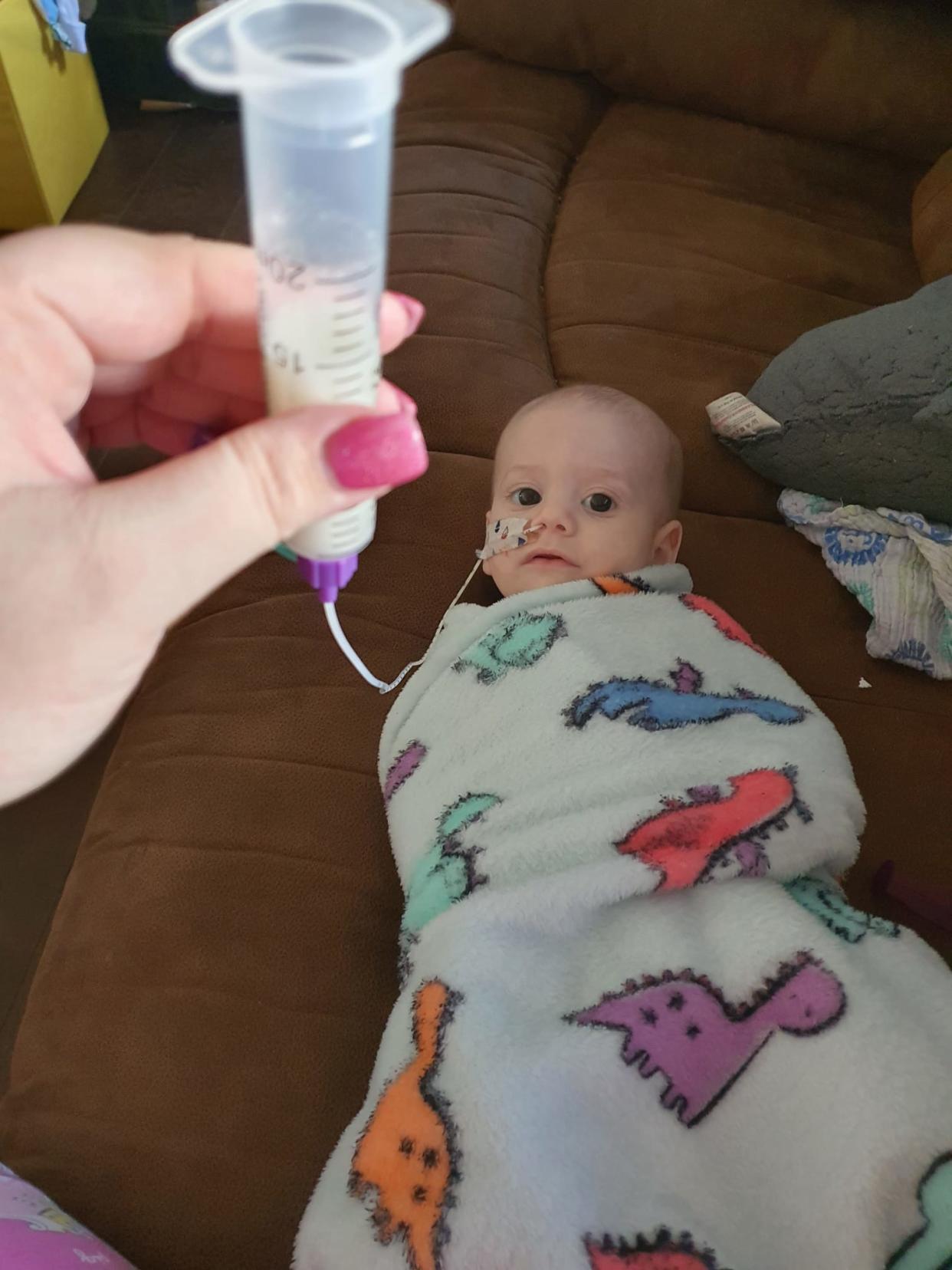
Hedges says she remembered once reading something about a flash on the camera highlighting a health issue, but couldn't recall the full details, so decided to take some photos of her son's eye using the flash.
"When I Googled it afterwards, one of the suggestions was cancer," she adds.
Concerned she booked an appointment with a GP and Thomas was examined five days later.
Although the GP didn't seem worried Thomas was referred to Medway Hospital where he was diagnosed with eye cancer.
"The doctor called us back into his room to discuss the results," Hedges recalls.
"I was in the bathroom at the time and when I came out, he was waiting for me, so I knew then it wasn't good news. No doctor waits for someone outside the toilet do they?
"Before he said anything I asked, 'Is it cancer?' and he said, I'm sorry it's not good news."
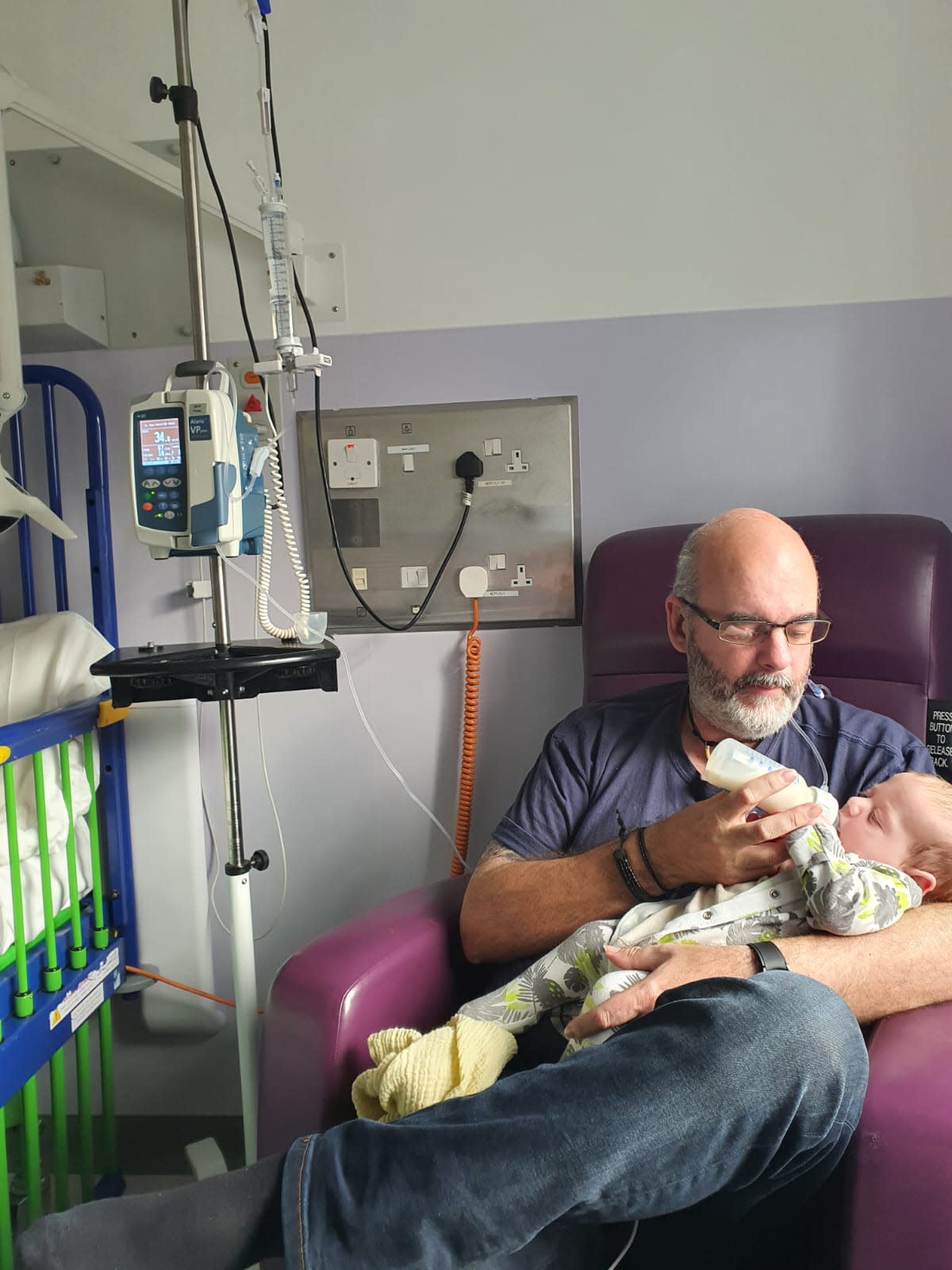
Thomas was referred to the Royal London Hospital, and had six rounds of chemo, beginning in November 2022.
After also battling sepsis, he finished his final round of chemotherapy on April 6, 2023 and got to ring the bell on May 10, 2023.
Hedges says Thomas is recovering well from his treatment and despite his health journey is a very happy little boy.
"He loves playing with his older brother rough and tumble on the floor," she adds.
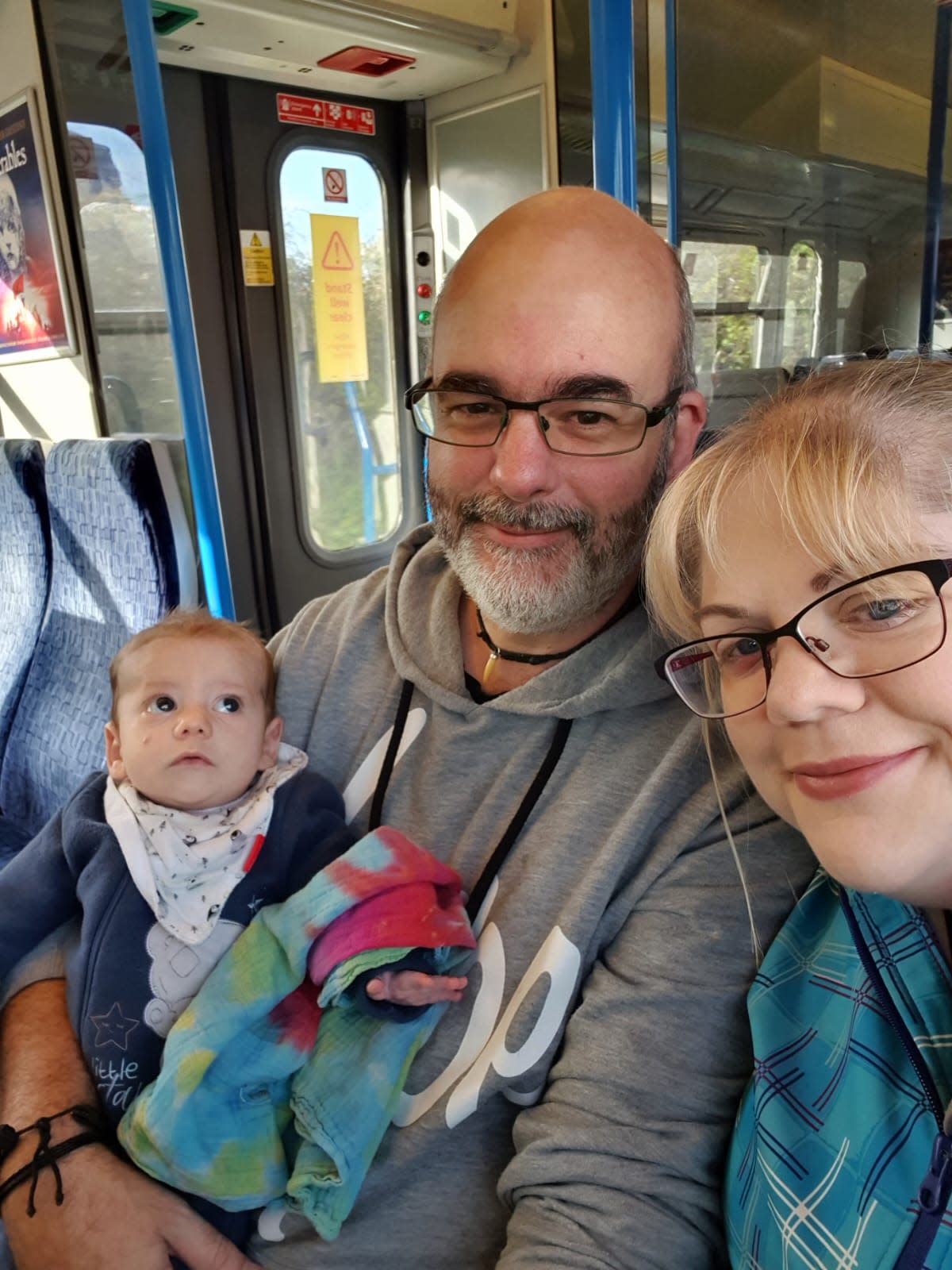
What is retinoblastoma?
According to the NHS retinoblastoma is a rare type of eye cancer that can affect young children, mostly affecting children under three years of age.
The disease can be in one or both eyes and affects the back of the eye (the retina).
Treatments are available and it can usually be treated successfully if it's found early.
The health service says retinoblastoma is often linked to a change in a gene that controls the growth of the eye. It can run in families.
Symptoms of retinoblastoma
The Childhood Eye Cancer Trust (CHECT) says that typical signs of retinoblastoma include a white glow, which may only appear in certain lights, or a squint, as well as a change in the appearance of the eye or a swollen eye, although often only one sign or symptom is present.
Richard Ashton, chief executive of CHECT, adds: "Symptoms can be quite subtle, and children often seem well in themselves which can make it hard to diagnose. In just under half of all cases, a child must have an eye removed as part of their treatment.
"We are grateful that in Thomas’ case, his symptoms were recognised so that he could receive treatment," Ashton adds.
Additional reporting SWNS.
Children's health: Read more
Mini Eggs choking warning issued to parents of young children by charity (Yahoo Life UK, 7-min read)
The tell-tale signs your child needs glasses that more than a third of parents miss (Yahoo Life UK, 5-min read)
What food should you introduce to babies to reduce the risk of intolerances and allergies? (Yahoo Life UK, 5-min read)


